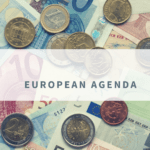European institutions and agencies are acting decisively to mitigate the socio-economic impact of the coronavirus crisis in the European Union.
Below we highlight what the European institutions have been working on so far:
Forthcoming meetings
| Institutions | Meetings | |
| Date | ||
| European Council |
06.12.2021 |
|
| European Council |
18.11.21 |
|
[toc]
Significant events in this agenda are outlined below:
05 october 2021:Taxation: Anguilla, Dominica and Seychelles removed from the EU list of non-cooperative jurisdictions
- In conclusions approved today, the Council decided to remove Anguilla, Dominica and Seychelles from the EU list of non-cooperative jurisdictions for tax purposes. All three had previously been placed on the list because they did not meet the EU’s tax transparency criteria of being ranked as at least ‘largely compliant’ by the OECD Global Forum regarding the exchange of information on request. The delisting was preceded by the forum’s decision to grant these jurisdictions a supplementary review on this matter.Nine jurisdictions remain on the EU list of non-cooperative jurisdictions (Annex I): American Samoa, Fiji, Guam, Palau, Panama, Samoa, Trinidad and Tobago, US Virgin Islands and Vanuatu.Pending the granted supplementary review, Anguilla, Dominica and Seychelles are now included in the state of play document (Annex II), which covers jurisdictions that do not yet comply with all international tax standards but that have committed to implementing tax good governance principles.Costa Rica, Hong Kong, Malaysia, North Macedonia, Qatar and Uruguay have also been added to this document, while Australia, Eswatini and Maldives have implemented all the necessary tax reforms and have therefore been removed from it.Following today’s revision, Turkey continues to be mentioned in Annex II. In its conclusions of February 2021, the Council called on Turkey to commit to automatic information exchange with all member states. Even though progress has since been made, further steps need to be taken.
Background
Twice a year the Council revises its list of non-cooperative jurisdictions and an accompanying state of play document. This practice was established in 2017 to promote global good governance in taxation and inform member states on which non-EU jurisdictions engage in abusive tax practices. They can then employ defensive measures to protect their tax revenues and fight against tax fraud, evasion and abuse.
The criteria for listing are in line with international tax standards and focus on tax transparency, fair taxation and prevention of tax base erosion and profit shifting. The Council engages with the countries that do not meet these criteria, monitors their progress and regularly reviews and updates this list.
- The Council conclusions on the revised EU list of non-cooperative jurisdictions for tax purposes
- Code of Conduct Group report to the Council outlining information about updates of Annexes regarding specific jurisdictions, both listing and delisting
- Statement on the conclusions on the revised EU list of non-cooperative jurisdictions for tax purposes
- EU list of non-cooperative jurisdictions (background information)
More information
Press releases – European Council
5 de octubre de 2021: ECOFIN Council conclusions on climate finance
1.EMPHASIZES the strong support of the EU and its Member States for the urgent and ambitious implementation of the Paris Agreement and COMMITS to further accelerating efforts in line with the European Green Deal, the ambitious green objectives and climate spending targets pursued through the EU’s Multiannual Financial Framework, including its external policy instruments, and the NextGenerationEU, as well as on the basis of the European Climate Law that requires the EU to reduce net greenhouse gas emissions by at least 55% by 2030 from 1990 levels and to be climate-neutral by 2050. ENCOURAGES other Parties to step up their own efforts to combat climate change to achieve the goals of the Paris Agreement. STRESSES the synergies between the 2030 Agenda for Sustainable Development, the Addis Ababa Action Agenda, the Sendai Framework for Disaster Risk Reduction and the Paris Agreement.
2.REITERATES the importance of making swift and ambitious progress towards achieving the long-term goals of the Paris Agreement as confirmed once again by the findings in the Intergovernmental Panel on Climate Change (IPCC) report published in August 2021. EMPHASIZES that this includes making finance flows – public and private, domestic and international – consistent with a pathway towards low greenhouse gas emissions and climate-resilient development, and STRESSES the need to assess the progress that Parties to the Paris Agreement have made in this respect in the forthcoming Biennial Assessment by the Standing Committee on Finance and the Global Stocktake due in 2023. UNDERLINES the need to seize the opportunities offered by Covid-19 recovery spending to put economies on a more sustainable and climate-neutral and climate-resilient path.1
3.HIGHLIGHTS the need to significantly enhance the mobilisation of private finance to help implement the Paris Agreement and UNDERLINES the important leveraging role that public policy, including public finance, as well as sectoral roadmaps can play in that regard. ENCOURAGES all Parties to enhance transparent reporting on private finance mobilised for climate action. CALLS on the private sector to significantly reinforce efforts to help achieve a climate-neutral and climate-resilient future. EMPHASIZES that the EU and its Member States are taking ambitious steps to align financial flows with the Paris Agreement, including through the 2018 EU Action Plan on Financing Sustainable Growth and the follow-up Strategy for Financing the Transition to a Sustainable Economy2. In this context, WELCOMES the progress made on an EU taxonomy for environmentally sustainable economic activities, on sustainability-related disclosures for issuers and for financial market participants, on the European green bond standard, and on corporate sustainability reporting. STRESSES that the EU will support convergence of sustainable finance approaches and tools globally and promote coherence, comparability and interoperability with the standards and taxonomy developed by the EU. EMPHASIZES the importance of transparency and mitigation of climate related risks in the financial system and WELCOMES the relevant proposals put forward in the Strategy for Financing the Transition to a Sustainable Economy and the work of the G20 and Financial Stability Board on sustainable finance. ENCOURAGES partners to join the International Platform on Sustainable Finance.
4.STRESSES that carbon pricing and phasing out environmentally harmful fossil fuel subsidies are key components of an enabling environment to shift financial flows towards climate-neutral and sustainable investments as well as to support a just transition, and COMMITS to supporting developing countries in their own efforts. WELCOMES the explicit commitment by the June G7 Summit to end new direct government support for unabated international thermal coal power generation by the end of 2021, including through Official Development Assistance (ODA), export finance, investment, and financial and trade promotion support3 and calls on OECD members to follow through by taking relevant decisions on ODA reporting and on the Coal-Fired Electricity Generation Sector Understanding of the OECD Arrangement on Officially Supported Export Credits.
5.HIGHLIGHTS the role of the Coalition of Finance Ministers for Climate Action in mainstreaming climate change considerations into macro-fiscal policy making and budgetary processes, promoting the use of carbon pricing instruments and mobilizing private climate finance, in order to prioritize climate-neutral and climate-resilient growth and to facilitate a just transition towards climate-neutrality. EMPHASISES the benefits of mobilizing and aligning the finance needed to implement national climate action plans; developing best practices such as evaluating the climate effects of public finance and strategies for green investment and procurement; and factoring climate risks and vulnerabilities into members’ economic planning, in line with the Coalition’s Helsinki Principles.
6.RECONFIRMS the commitment by the EU and its Member States to continue scaling up their contribution to international climate finance from a wide variety of sources – public and private, bilateral and multilateral, including alternative sources of finance –, instruments and channels, in the context of meaningful mitigation actions and transparency on implementation, as part of the goal of developed countries to collectively mobilise USD 100 billion per year through to 2025. RECALLS that the EU and its Member States are the largest contributor of international public climate finance, and since 2013 have more than doubled their contribution, and submitted a detailed and comprehensive communication on ex ante climate finance information in accordance with Article 9.5 of the Paris Agreement. Mindful of the recent OECD report on climate finance data for 20194 CALLS ON other developed countries to also increase their contribution to the collective USD 100 billion goal as a matter of urgency.
7.In this context, REAFFIRMS the continued need to scale up finance supporting adaptation objectives, and to strike a better balance between mitigation and adaptation actions, particularly in the most vulnerable countries, and for the benefit of their most vulnerable populations, notably Least Developed Countries and Small Island Developing States. Also UNDERLINES the importance of prioritising support for the implementation of Nationally Determined Contributions, better mobilising private finance through public interventions, enhancing access to climate finance as well as ensuring transparency in implementation, regular monitoring, and continuous assessment of effectiveness of funds provided.
8.REAFFIRMS the commitment by the EU and its Member States to engage constructively in deliberations on a new collective quantified goal from a floor of USD 100 billion per year for the period post 2025, taking into account the needs and priorities of developing countries. CALLS ON Parties to design the new goal in such a way as to ensure that finance flows are made consistent with the long-term goals of the Paris Agreement and make an effective contribution to mitigation and adaptation. Also HIGHLIGHTs the need of drawing lessons from the implementation of the USD 100 billion goal, of assessing the contribution that Parties’ public and mobilised private finance make towards shifting finance flows, of widening the array of instruments and funding sources, including through the mobilisation of private finance.
9.RECALLS the crucial role of Multilateral Development Banks (MDBs) and other Development Finance Institutions (DFIs) in achieving climate goals and climate finance commitments including through the mobilisation of private climate finance. WELCOMES the strategies established by a number of key MDBs, including, as a frontrunner, the European Investment Bank, as well as the European Bank for Reconstruction and Development and the World Bank Group, and by other DFIs to align their portfolios with the Paris Agreement and to scale up climate-related investments. STRESSES the importance of plans ensuring the effective implementation of these strategies including with respect to intermediated lending and inter alia by supporting countries to develop and implement ambitious Nationally Determined Contributions, Long Term Strategies and Adaptation Plans. CALLS ON those MDBs, other DFIs and Export Credit Agencies that have not yet done so to set ambitious dates for the adoption of Paris alignment strategies ahead of COP26 and to mobilise increased climate finance including from the private sector.
10.REQUESTS the European Commission to provide an overview on international climate finance from the EU, including from the European Investment Bank, and its Member States for 2020 and for the Council to endorse this contribution prior to the UNFCCC COP26.
More information
Press releases- European Council
28 october 2021: Recovery fund: ministers welcome assessment of Estonia’s, Finland’s and Romania’s plans
Economy and finance ministers today welcomed the assessment of national recovery and resilience plans for Estonia, Finland and Romania. Council implementing decisions on the approval of these plans will be adopted by written procedure shortly after today’s ministers’ video conference.
Following the formal adoption of the decisions, those member states will be able to receive the requested 13% pre-financing and begin making use of the EU’s large-scale financial support to overcome the adverse impact of the pandemic on their economies. The EU’s recovery fund makes €672.5 billion (in 2018 prices) available to support reforms and investments member states make to stimulate their economies, while prioritising green and digital spending.
|
I’m happy to be able to share good news for three more member states. We have just confirmed the positive assessments for the recovery and resilience plans of Estonia, Finland, and Romania. They will soon be able to receive their pre-financing payment from the Recovery and Resilience Facility. The reforms and investments outlined in their plans strongly support the European green and digital agenda. By addressing the key challenges, the overall European recovery will be more sustainable and more resilient. Andrej Šircelj, Slovenia’s Minister for Finance |
Key measures
Estonia’s €969.3 million plan includes efforts to decarbonise the economy and aims at developing innovative green technologies such as green hydrogen. It also facilitates the green transition for businesses and improves access to green finance for SMEs. In terms of digital transformation, the plan centres on the competitiveness of Estonian companies and includes financial support to SMEs and microenterprises across all sectors to help them on their digital path.
Finland’s €2.1 billion will contribute to its goal of reaching carbon neutrality by 2035. The measures Finland outlined in its recovery plan encompass increasing the share of renewables in the energy mix, decarbonising industry, reducing emissions of buildings and promoting low-emission transport systems. The plan’s digital component includes investments in high-speed broadband networks and supports the digitalization of businesses and the public sector.
Phasing out coal and lignite power production and deploying renewables, as well as making investments and reforms in the areas of buildings renovation, railways modernisation, water and waste management, and afforestation and reforestation are measures Romania plans to implement to reach its climate objectives. Its €14.2 billion in grants and €14.9 billion in loans will also be used, among other things, to digitalise the country’s public services and strengthen the resilience of the healthcare system.
Background and next steps
The measures approved in the national plans focus on six key policy areas (‘pillars’) and address 2019 and 2020 country-specific recommendations. Reaching milestones and targets set for the planned measures is the precondition for the payment of the EU’s financial contributions.
Once Estonia’s, Finland’s and Romania’s plans have been formally approved, 22 member states will have had their national recovery plans adopted. 17 member states have received their requested pre-financing. The total amount disbursed so far is around €52.4 billion.
More information
Press releases- European Council
29 october 2021: Council approves 2020 climate finance figure
In 2020, €23.39 billion1 in climate finance was committed by the European Union and its 27 member states to support developing countries in reducing their greenhouse gas emissions and adapting to the impacts of climate change. This figure was approved by the Council today, in preparation for the United Nations Climate Change Conference of the Parties (COP26), which will take place from 31 October to 12 November in Glasgow. The figure is based on new, more detailed EU climate finance reporting rules.2
In 2020, close to 50% of the funding for developing countries was dedicated to either climate adaptation or cross-cutting action (involving both climate change mitigation and adaptation initiatives) and close to half of the total funding was committed in the form of grants, according to data compiled by the European Commission.
The EU and its member states are determined to continue scaling up their international climate finance towards the developed countries’ collective goal of mobilising USD 100 billion per year, applicable through to 2025. They have recently made concrete pledges to enhance their contributions in the coming years as part of a climate finance ‘delivery plan’ that donor countries published on 25 October 2021.*
International public climate finance plays an important role in helping developing countries to implement the 2015 Paris climate change agreement.
1 Climate finance from public budgets includes EUR 2.5 billion from the EU budget and European Development Fund and EUR 2.7 billion from the European Investment Bank. The overall figure is calculated on the basis of commitments made for bilateral and multilateral support. As this represents a change compared to past reporting methodology, this year’s figure cannot be compared directly with figures reported in previous years. As certain commitments cover a multi-annual period, reported annual amounts may fluctuate over time.
2 EU Member States have, this year, reported data on commitments pursuant to Article 19.3 of Regulation (EU) 2018/1999 of the European Parliament and of the Council of 11 December 2018 (‘Governance Regulation’) and Article 6 and Annexes III-V of Commission Implementing Regulation 2020/1208.
More information
Press releases – European Council
08 november 2021: Macroeconomic dialogue at political level on 8 November 2021
The 43rd meeting of the macroeconomic dialogue at political level focused on the economic outlook and the digital transformation in light of the recovery.
“Today, we agreed that the recovery after the pandemic is strong and the macroeconomic outlook bright. We still have to be careful about the risks, mostly those associated with the virus, and we also have to adjust to the novelties that the pandemic accelerated. One of them is digital transformation. When it comes to digitalization, the EU has a lot of space for improvement. Here lies a great potential to revive the productivity and ensure future growth. However, we have to make sure that the transition is inclusive. We have to ensure that the current and future workers will have access to reskilling and upskilling. Those who need more support with the transition should receive it. The digital transition will only be a success if there is a driving force behind it – and this force are the workers. Hence, a close cooperation with all relevant stakeholders will be crucial for an inclusive and successful digital transformation.”
“The EU economy is recovering and all EU countries will return to their 2019 GDP levels this year or next, some have already done so. There is still uncertainty and new risks are emerging. Europe needs to stay the course of reforms and investments agreed under the Recovery and Resilience Facility to advance the economic transformation and green and digital transitions. Investing in digital skills and the adoption of digital technologies are top priorities, including under the RRF. The 22 national recovery and resilience plans endorsed by the Commission so far dedicate nearly €120 billion to support the digital transition – boosting investments in connectivity, digital skills, advanced technologies and research capacity, as well as for digitalising businesses and public services. Support from social partners and civil society will be essential for us to navigate our way through the recovery and the digital, green and demographic transitions.”
Commission Executive Vice-President Valdis Dombrovskis
“The digital transition for some is almost seamless but for others, digitalisation is more challenging and not necessarily automatic. That is why policy will need to be increasingly targeted. We need to take advantage of the current economic rebound and new instruments, such as our EU Recovery Fund, to reskill and upskill our workforce while promoting an inclusive society. This is where social partners will have a crucial role to play.”
President of the Eurogroup Paschal Donohoe
“The European economy is growing, but many working people are not benefitting. The total numbers of hours worked and the average hours worked are below pre-pandemic levels, and may not reach pre-pandemic levels until 2026 according to a recent ETUI study. This will leave young and low-skilled workers with inadequate wages and restricted opportunities. With rocketing energy prices, and wages declining in the second quarter of this year, there is a real risk of mass energy poverty. Emergency measures need to be continued, stabilisers like SURE must be made permanent and EU investment programmes Next Generation EU stimulus package must include conditions and monitoring mechanisms to ensure massive job creation and actions to level up inequality.”
Luca Visentini, ETUC General Secretary
“While recovery is in sight the EU needs to remain very alert to the dangers. COVID is not over yet and financial support is still needed. Although public investment rates are increasing, this is largely due to EU support. A round of cut backs would be catastrophic for the European economy. It is possible, and essential, to offer financial support, especially for socially just climate action and digitalisation, and to have sustainable public finances. The ETUC will be pressing for effective reform of EU economic policymaking rules to enable investment, to make debt sustainable and to avoid austerity.”
Liina Carr, ETUC Confederal Secretary
“The EU economy is undergoing a strong recovery which gives ground for optimism for Europe’s businesses after a long period of almost unparalleled hardship. At the same time, bottlenecks and supply side constraints are slowing down the economic recovery and increase inflationary pressure. These phenomena together with other factors bear the considerable risk that they, if not met with sufficient moderation, could give rise to a damaging wage-price spiral, which would cause permanently higher inflation and would be detrimental to Europe’s global competitiveness.”
BusinessEurope Director General Markus J. Beyer
“The implementation of the National Recovery and Resilience Plans is crucial to achieve long-term growth potential in line with the transformation of our economies. Essential services of general interest should be placed at the heart of the investments and reforms elements of the Recovery and Resilience Facility. All 27 National Recovery Resilience Plans must reinforce the accessibility, affordability, and quality of key SGIs to ensure the EU strategic autonomy and protect the most vulnerable. The review of the EU economic governance is a historical opportunity to align the investment approach of the Next Generation EU with fiscal policies, with the ultimate aim to attain sustainable debt financing research, education and digital and green infrastructures.”
Valeria Ronzitti, General Secretary of SGI Europe
“Supply bottlenecks and high energy and commodity prices are becoming a threat for the recovery. SMEs fear inflation and second round effects on wages, which could add to the already-existing lack of skilled staff. Therefore, phasing out of covid measures should be done smoothly and may not put the solvency of viable businesses in danger. Finally, fostering digitalisation of SMEs requires measures which ensure access to infrastructure, technology, finance and skills. Moreover, the regulatory environment must be predictable and guarantee fair access to data and SME friendly standards.”
Véronique Willems, SMEunited Secretary General
“If we want to benefit from the recovery, we cannot be content to return to the old ways. We must look beyond that. It is essential to invest more in the industries of the future to roll out the digital and climate transitions. Fostering innovation and boosting potential growth will be our way to achieve strong, low-carbon growth.”
Incoming French Presidency (Jan-Jun 2022)
“The importance of the digitalisation process is undeniable. It will increase the competitiveness of EU companies, make life easier for citizens and reduce costs for public administrations. It is also an important driver for increasing labour productivity. To make the process a success, we need to increase people’s trust in the digital economy. This means setting a clear and trustworthy legislative environment and minimising bureaucracy for citizens, businesses and public administrations.”
Future Czech Presidency (Jul-Dec 2022)
More information
Pree releases – European Council
08 de noviembre de 2021: Eurogroup
Macroeconomic developments
The Eurogroup discussed macro-economic developments, including inflation, and policy prospects in the euro area. Ministers took stock of and exchanged views on energy prices and inflation developments within the euro area ahead of the Commission’s autumn forecast.
“As activity picks up and recovery takes hold across advanced economies, the bottlenecks we are experiencing in some sectors of our economies are contributing to a spike in inflation. While the increase in prices is largely due to temporary factors, they are a bit more persistent than anticipated but they are expected to fade away over 2022.”
Paschal Donohoe, President of the Eurogroup
Digital euro
The Eurogroup discussed policy objectives and the uses of the digital euro in the context of the fast pace of digitalisation in the global economy, and its impact on the euro area and the common currency, and took stock of related initiatives and developments at international level.
“As consumers and firms turn increasingly to electronic payments, we want to ensure that our citizens and all actors in our economy continue to have access to public money in a range of scenarios. For instance, a digital euro could offer a European solution in a context of increased demand for alternative means of payments.”
Paschal Donohoe, President of the Eurogroup
Economic governance review
The Commission presented the relaunched economic governance review, with a focus on the euro area dimension. Ministers discussed the process through which Eurogroup (and Eurogroup in the inclusive format for relevant items) meetings will consider the governance review, and held an initial discussion on how the Eurogroup could address challenges to the coordination of fiscal and economic policies within the euro area and to the functioning of EMU in a post-COVID economic environment
“We all agreed on the importance of an effective economic governance framework and of the need for discussion on overarching issues, including national ownership, simplification and enforcement. Overall, our efforts will be about how we can strike a balance between fostering growth-friendly investments and ensuring fiscal sustainability”
Paschal Donohoe, President of the Eurogroup
Banking union and Single Resolution Fund updates
The Eurogroup was briefed by the institutions on the main results of the bi-annual monitoring report on risk reduction indicators. Ministers also took stock of the preparations for the introduction of the common backstop to the Single Resolution Fund, as agreed in November 2020.
“The technical work to introduce the common backstop to the Single Resolution Fund has been completed. As soon as all member states have finalised the ratification of the ESM Treaty and the Amending Agreement to the Inter-governmental agreement, we will take the final procedural step to put the backstop in place at the beginning of 2022..”
Paschal Donohoe, President of the Eurogroup
More information:
Press releases – European Council
09 November 2021: The future of the European Semester in the context of the Recovery and Resilience Facility – Council conclusions
The Council of the European Union
- NOTES that in 2020, the framework for the annual coordination of economic, fiscal and employment policies across the European Union known as the European Semester was temporarily adjusted due to the COVID-19 pandemic towards addressing the negative health and socio-economic consequences. New economic circumstances and the European response to the COVID-19 crisis caused a temporary adjustment of the European Semester also in 2021 with policy guidance focusing solely on fiscal policies, as the attention was put on the preparation, adoption and implementation of the Recovery and Resilience Plans.
- WELCOMES that the adjustment of the European Semester in 2020 and 2021 including on fiscal guidance contributed to the coordination of policy actions to effectively address the pandemic, sustain the economy and support a sustainable recovery. AGREES that also during this exceptional period, the European Semester proved to be a credible and flexible framework for the EU economic, fiscal and employment policy coordination.
- UNDERLINES that the European Semester and the Recovery and Resilience Facility should continue, without duplications, to tackle the crisis’ impact and to contribute to strengthening economic resilience and sustainable, dynamic and inclusive long-term growth, thus enhancing convergence among the EU economies. STRESSES that the European Semester should continue to ensure comprehensive surveillance of fiscal, financial, economic and employment policies, and it should closely monitor remaining and evolving risks and challenges, detect policy gaps, and ensure their follow-up. The European Semester should pay particular attention to the green and digital transition, which must be a key driver in the recovery; it should promote sustainable economic growth, well-functioning labour markets and social inclusion.
- CALLS for a swift return to the core elements of the European Semester in the 2022 cycle, especially reinstating country reports and country-specific recommendations. UNDERLINES the need to take into account the ongoing recovery process, the related uncertainties and the implementation of the Recovery and Resilience Facility. STRESSES that country-specific recommendations should focus on a comprehensive range of challenges concerning economic, fiscal and employment policies, including those with large spillovers.
- STRESSES the need for ensuring the complementarity and exploring synergies between the European Semester and the implementation of the Recovery and Resilience Facility, including streamlining of reporting requirements, wherever possible, to avoid excessive administrative burden and overlaps. LOOKS FORWARD to the Commission’s early guidance on national reporting and monitoring requirements, especially regarding the minimum requirements for the annual national reform programmes.
- UNDERLINES the importance of an open dialogue with the Commission services on national economic, fiscal and employment policies throughout the European Semester cycle. Broad-based mutual understanding of national policy needs can increase national ownership in the European Semester and contribute to the improved implementation of relevant policy reforms. HIGHLIGHTS that, together with national ownership, transparency of the process must be ensured.
- RECALLS that multilateral surveillance and the related peer reviews remain central in the EU economic policy coordination under the European Semester. UNDERLINES that high-quality Commission analysis and policy recommendations are key for efficient multilateral reviews and subsequent national policy action.
- ACKNOWLEDGES the expectation of the deactivation of the general escape clause of the Stability and Growth Pact as of 2023. STRESSES the need to safeguard the economic recovery, also taking into account the uncertainty of the economic outlook and the asymmetric impacts of this crisis, while ensuring that fiscal policy is agile and adjusted to circumstances, and fiscal sustainability preserved in the medium term.
- STRESSES the importance of continued monitoring of the implementation of country-specific recommendations under the European Semester and the communication of the annual assessment of the implementation progress. Regular stocktaking at the EU level and related peer reviews remain crucial for promoting reform implementation. NOTES that it may require several years to effectively implement major structural reforms, and therefore RECALLS the possible benefits of issuing policy recommendations on structural economic policies less frequently than annually, combined with an annual assessment.
- WELCOMES the continued implementation of the Macroeconomic Imbalance Procedure also during the COVID-19 pandemic and in the context of the related heightened economic uncertainties, including the Commission’s 2021 Alert Mechanism Report and in-depth reviews. CALLS for close monitoring of the evolution of existing imbalances and remaining vigilant for detecting and addressing also new imbalances. RECALLS that swift and effective implementation of the Recovery and Resilience Facility has a potential for contributing to the correction and prevention of imbalances.
- PLANS to have thorough discussions on the economic governance review which was relaunched by the Commission on 19 October, and its potential implications on the operation of the European Semester, especially as regards the Stability and Growth Pact and the Macroeconomic Imbalance Procedure
Más información
Press Releases – European Council
12 November 2021: Economic and Financial Affairs Council (Budget)
EU budget for 2022
The Council will prepare the meeting of the conciliation committee taking place the same day. The conciliation committee’s task is to bridge the gap between the Council’s and the European Parliament’s positions on the 2022 EU budget and to agree on a joint text.
The Council’s objective is to reach an agreement that ensures prudent and realistic budgeting and provides adequate resources to the EU’s priorities. The Council also intends to leave sufficient margins under the expenditure ceilings of the multiannual financial framework (MFF) for 2021-2027 to allow the EU to react to unforeseen needs.
Depending on the results of the meeting of the conciliation committee, the Council will continue its session to either endorse the agreement reached with the European Parliament or decide on the next steps.
More information
Agendas previas
Bibliografía recomendada
Statement of estimates of the European Commission for the financial year 2022
Eurostatistics. Data for short-term economic analysis. 6/2021









Leave a Reply